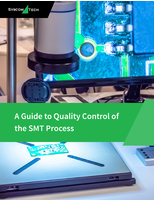ASTM issues monograph on micro-nanotribology.
Press Release Summary:
ASTM International has released Mongraph 7, Physics and Chemistry of Micro-Nanotribology, which presents principles and applications of tribology in micro-nano-scale. It discusses challenges faced by tribologists since development of new manufacturing techniques for electronic products. Emphasizing physical and chemical aspects and bridging fundamental studies and applications, 280-pg monograph covers various techniques as well as applications of tribology in magnetic record systems.
Original Press Release:
New ASTM International Monograph on Micro-Nanotribology
W. CONSHOHOCKEN, Pa., 13 February 2009 - ASTM International's new Mongraph 7, "Physics and Chemistry of Micro-Nanotribology," presents the principles and applications of tribology in micro-nano-scale and discusses some of the challenges faced by tribologists since the development of new manufacturing techniques for electronic products.
The monograph covers a broad range of topics on micro-nanotribology, with emphasis on the physical and chemical aspects and on bridging fundamental studies and applications. Topics include experimental methods and measure techniques; fluid film lubrication; molecular film lubrication; gas lubrication in nano-gap; mixed lubrication in nano-scale; applications of tribology in magnetic record systems; and chemical mechanical polishing of ultra-smooth surfaces. This is a valuable resource for tribologists, mechanical engineers, lubrication engineers and material scientist and engineers.
Mongraph 7, "Physics and Chemistry of Micro-Nanotribology" (280 pages, soft cover, 8.5" x 11"; ISBN: 978-0-8031-7006-3; stock #MONO7) is available for $117. Contact ASTM Customer Service (phone: 610-832-9585; fax: 610-832-9555; service@astm.org) or visit www.astm.org.
Established in 1898, ASTM International is one of the largest international standards development and delivery systems in the world. ASTM International meets the World Trade Organization (WTO) principles for the development of international standards: coherence, consensus, development dimension, effectiveness, impartiality, openness, relevance and transparency. ASTM standards are accepted and used in research and development, product testing, quality systems and commercial transactions around the globe.




